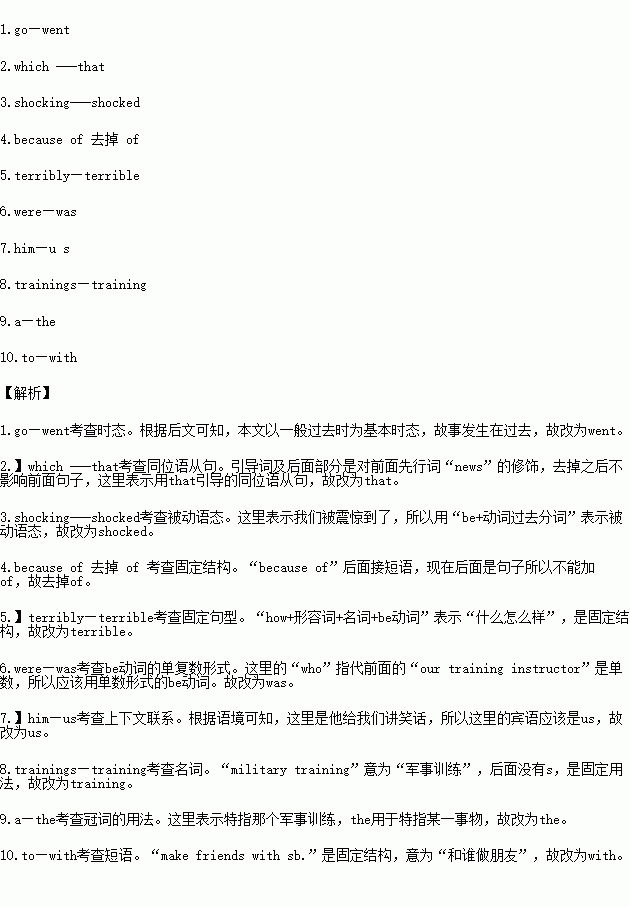题目内容
短文改错
假定英语课上老师要求同桌之间交换修改作文,请你修改你同桌写的以下作文。作文中共有10处语言错误,每句中最多有两处。每处错误仅涉及一个单词的增加、删除或修改。
增加:在缺词处加一个漏子符号(∧)并在其下面写出该加的词。
删除:把多余的词用斜线(\)划掉。
修改:在错的词下划一横线,并在该词下面写出修改后的词。
注意:1.每处错误及其修改均仅限一词;
2.只允许修改10处,多者(从第11处起)不计分。
The first day we go to high school, our head teacher told us the news which we needed to take the military training. We were all shocking at the news, because of it was so hot outside. How terribly it was! The next day, we met our training instructor, who were young and handsome. He was strict, but humorous, telling him jokes when we rested. At night, he asked us to sing military songs. We even competed with other teams. The days of the military trainings were beautiful ,and we found a training was not that hard. We became stronger and made friends to our military instructor.


 in China get married late?
in China get married late?